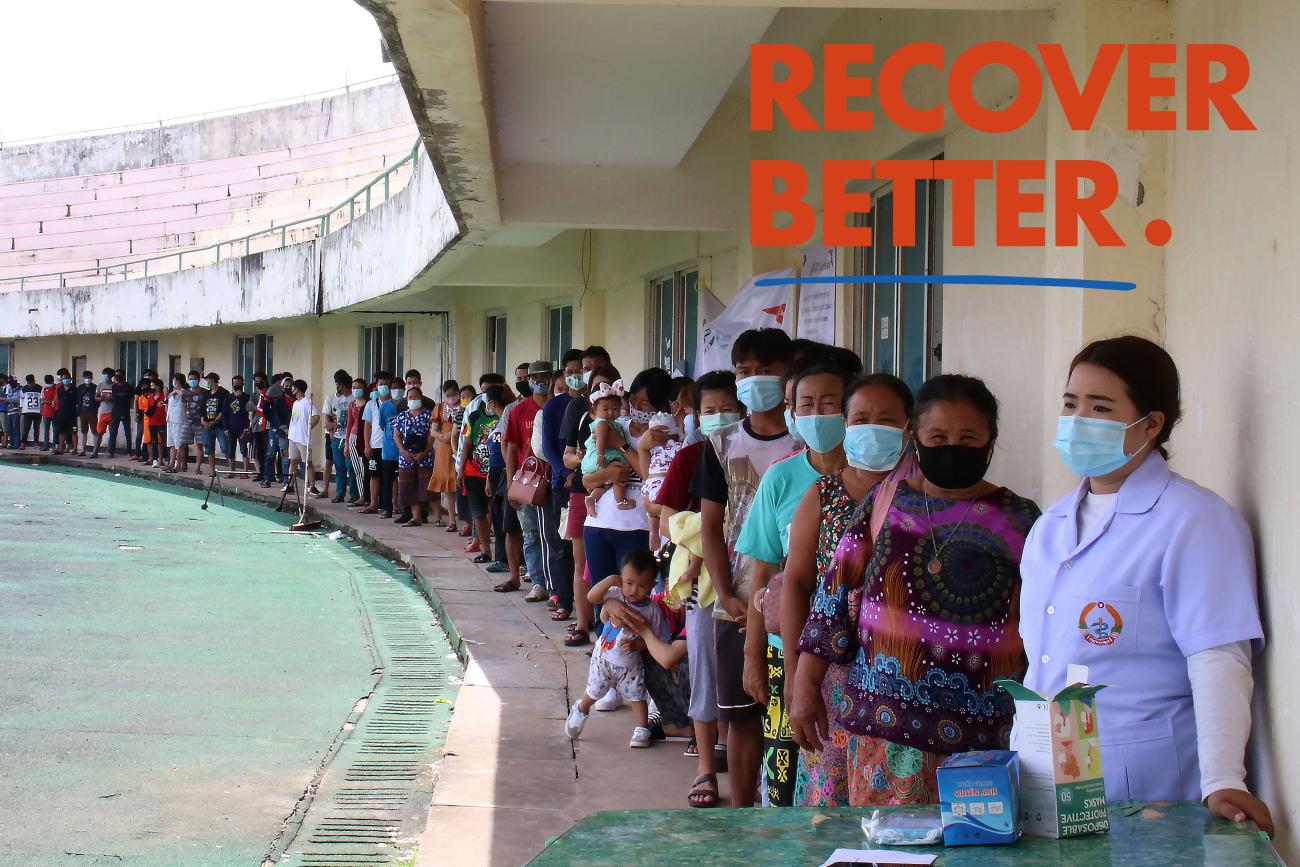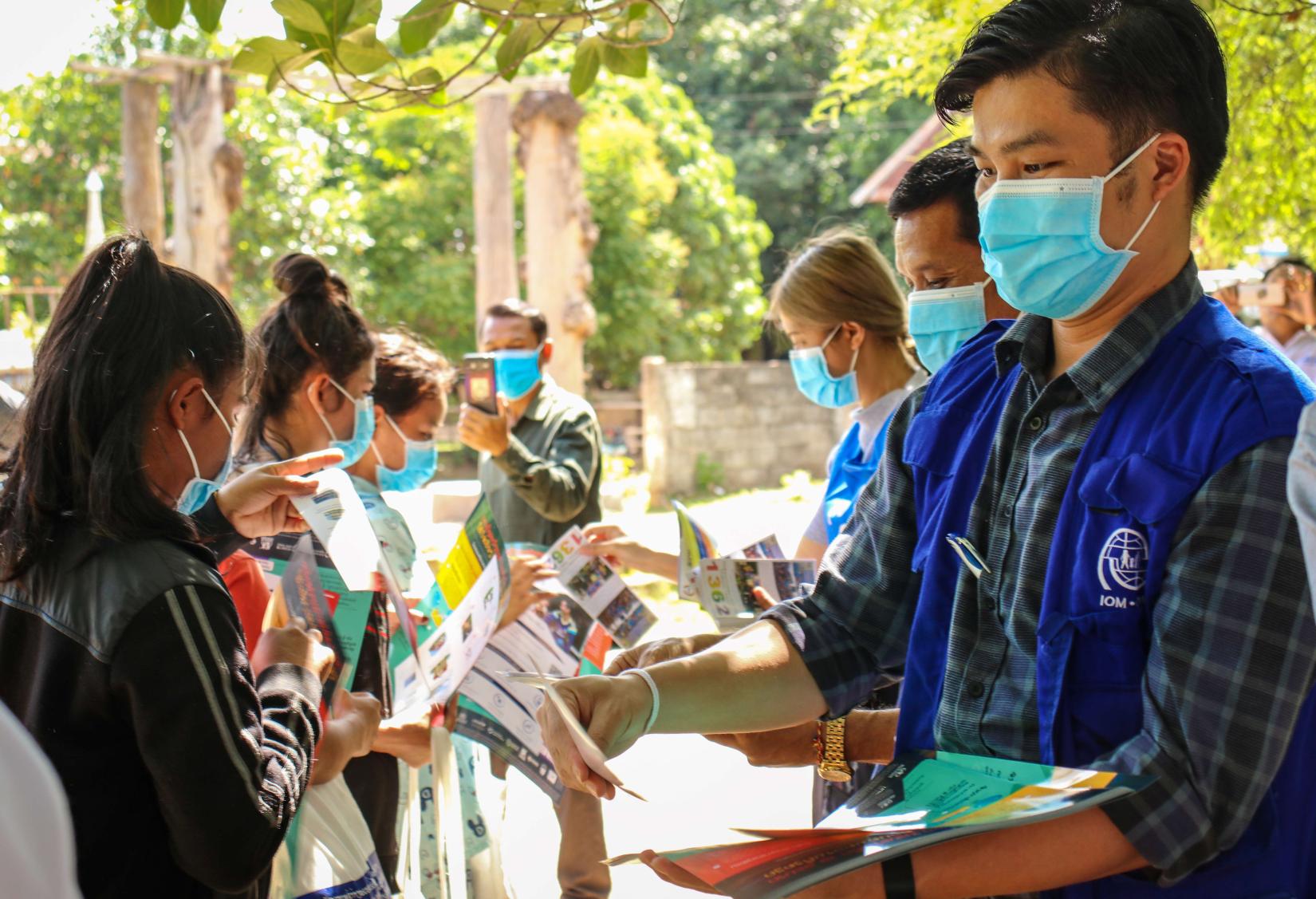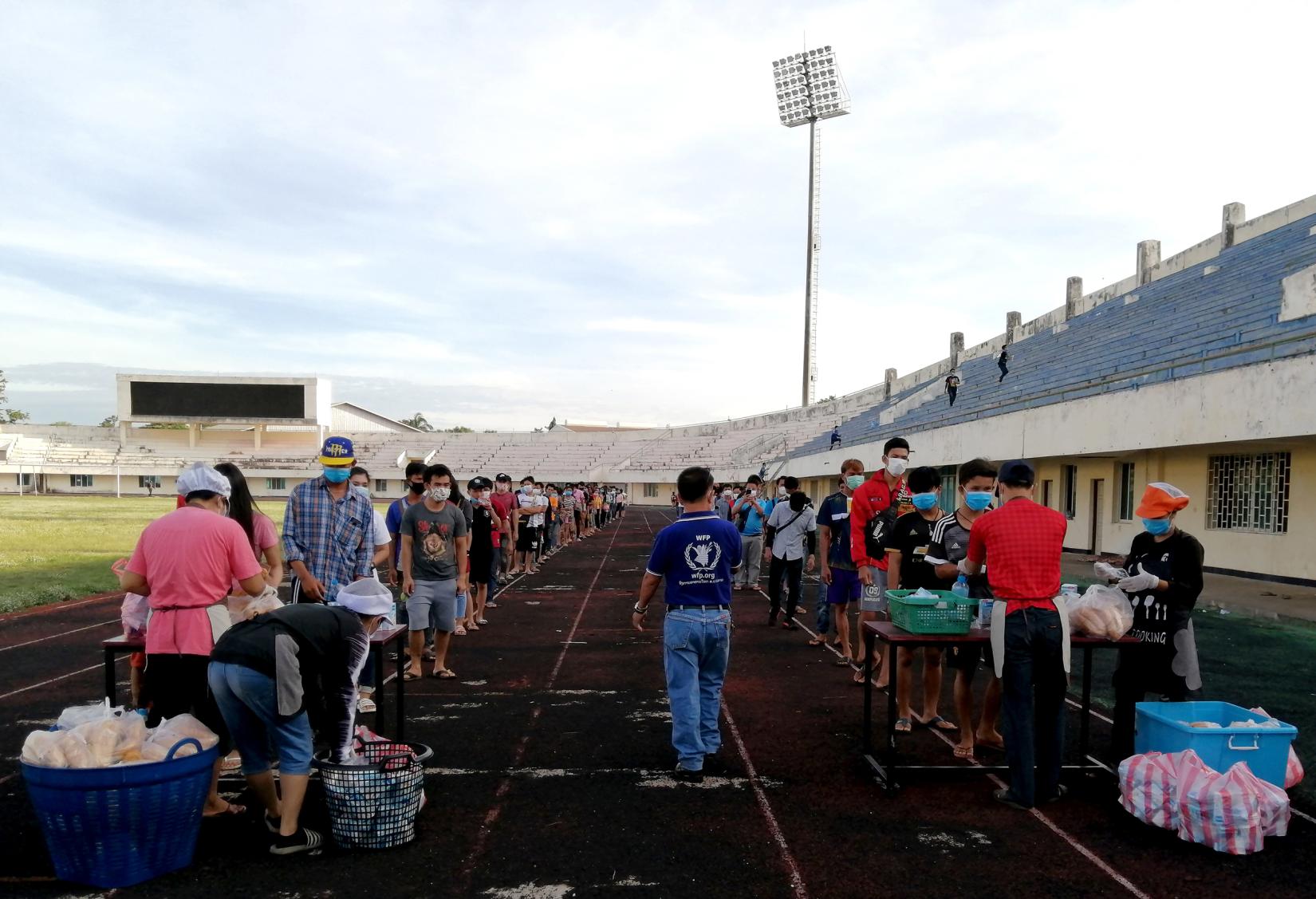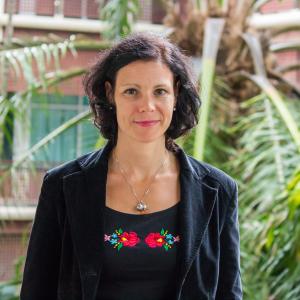Coming Home During COVID-19 – The Story of Noi, a Returning Migrant

A story placing people at the center of 2020 Human Rights Day emphasizing the global theme of “Recover Better – Stand Up for Human Rights”
Note: This is a fictional story that combines real-life experiences of several migrants. Names and geographical details have been changed.
It is a sunny day on the Nakai Plateau in Khammouane province. Noi just came back from the market after buying a new shirt for her 3-year-old son, Seng. Seng has grown much taller in two years, when Noi left for Thailand in search of better wages.
When Seng was 7 months old, 22-year-old Noi got her papers to start working at a banana plantation across the border, in Buri Ram province. Helping her parents on the rice field provided just enough food for a family of eight, but did not produce money to pay for electricity, education and, every now and then, some protein in form of neat or fish from the market. The process of acquiring regular migrant status with the help of an agency took time and money. But it was worth it, as Noi’s income in Thailand was much better than her wages as a daily labourer in Lao People’s Democratic Republic. Picking bananas in the heat all day wore Noi out. When she heard about a cleaning job in a hotel at Rayong city, she jumped at the opportunity to travel further South. The new job was more comfortable, but Noi missed her son and husband every day. Every time her mother sent a photo of Seng, she felt a sting in her heart.
In March 2020, travel restrictions were imposed due to COVID-19. The hotel Noi worked in, like other businesses in Thailand, shut down. Noi figured that she had no choice but to return home. Heated discussions with family back home fueled her determination. Everyone was worried about COVID-19, getting sick, being cut off from the family, and not earning enough money to survive. Noi will never forget that feeling of fear and not knowing when she would see her family again.
“I was not paid my last salary before I returned” says Noi. “I asked for my Thai social security membership card, but my employer refused to give it to me. I was not aware of my rights and didn’t want to report my employer to Thai authorities because I didn’t want any trouble”. Noi and her friends put together some cash for a private van to travel to the border area as public transportation had stopped. The van trip cost more than half of her savings.
One of her friends, La, was in greater trouble. Her travel documents and labour card had expired, and she had to pay a fine of THB 10,000. “We tried to pool all of our money, but it was still not enough,” Noi recalls. In the end, La decided to throw away her passport and labour card at the border check point in Mukdahan and hide in the back of the van. “We were all very worried about her, but she managed to cross the border, no one saw her.” If La ever leaves the country again, she will have to apply for new documents, which will be costly.

Upon re-entry into Lao PDR at Mukdahan checkpoint, Noi and her eight friends were taken to the Savannakhet Quarantine Center by military trucks. “The quarantine center was not as scary as I had imagined, the staff were very patient and explained to us why quarantine is important. I understood as I didn’t want to risk my family member’s health.” During the hot afternoons, Noi and her friends would rest in the shade as there were not enough electrical fans.. As one of the biggest provincial quarantine centres in the country, the Savannakhet Center has a capacity of 160 people, but during Noi’s stay there, close to 400 people were temporarily quarantined, making the space overcrowded. “Someone in my room told me she had waited at the border for a week before being allowed to cross. The border official said that there was no space at the quarantine center so they could not let her pass. We were quite lucky to not have to wait,” Noi recalls.
Noi also shares that she was never hungry during her stay in the quarantine center. “I heard that the United Nations, World Vision, and the Swiss Red Cross support certain quarantine centers to provide three meals. We also received basic hygiene supplies such as soap, toilet paper and toothpaste. I remember wondering if I could ever buy such things for Seng.”

After two weeks of quarantine, Noi finally got to go home. Some people were afraid of her when she first returned to the village. They worried that she was carrying the virus and kept their distance. “It was a bit difficult in the beginning, but after a week or two my neighbours finally believed I didn’t have COVID-19,” Noi smiles. She was overjoyed to be back with her son, yet she also worries about her situation. ”The financial situation of our family is not good. Although my husband still sends back money from the South, his income as a daily labourer is not enough to support the whole family.”
Noi looks at Seng as she ponders about her future. “I don’t want to leave Laos again. I will try to find a job in a nearby guesthouse. I think my work experience in Thailand can help me.” While the wages maybe lower, Noi wants to stay near home and spend more time with her son, who is blissfully napping in her lap. To her, there is nothing more important than family.
Migration provides job opportunities and a better life for migrants and their families. At the same time, family members and familiar surroundings and networks are left behind. This is not just Noi’s story, but also the reality of approximately 280,000 migrant workers from Lao PDR in Thailand. According to the COVID-19 Socio-Economic Impact Assessment conducted by the United Nations in Lao PDR, there are more than 320,000 Lao citizens who became unemployed during the pandemic, with around USD 125 million remittances lost. It is estimated that about 50 per cent of the population have had to reduce their consumption, with 15 per cent unable to pay for basic food.
The United Nations continues to work with the government and people of Lao PDR to leave no one behind. The United Nations World Food Programme supports returning migrant workers in quarantine centers across the country with distribution of food and hygiene items, and works to help villagers bridge food gaps and become self-sufficient in times of income loss. The International Organization for Migration has been supporting the Lao Government in enhancing border management capacity, providing safe migration training to officials and migrants, and distributing direct assistance packs to returned migrants staying at quarantine centres. Data collection activities were carried out at quarantine centres and border checkpoints to support the formulation of evidence-based interventions to better protect migrants and frontline officials under COVID-19.
Even in the most difficult times, everyone should be treated with dignity and respect. Noi, like every migrant, should be able to live a life in safety, enjoying equal rights.
---
The International Organization for Migration (IOM) is the leading inter-governmental organization in the field of migration. IOM works to help ensure the orderly and humane management of migration, to promote international cooperation on migration issues, to assist in the search for practical solutions to migration problems and to provide humanitarian assistance to migrants in need. In Lao People’s Democratic Republic, IOM supports the government in disseminating safe migration knowledge, improving protections and providing assistance for migrants, strengthening immigration and border management, and supporting labour mobility and human development.
- Like IOM on Facebook @IOM.Laos.int
- For more information please contact: Karen Ho, IOM Junior Communication Officer, kho@iom.int, Tel. +856 (0)21 267 734
The United Nations World Food Programme is the winner of the 2020 Nobel Peace Prize. We are the world’s largest humanitarian organization, saving lives in emergencies and using food assistance to build a pathway to peace, stability and prosperity for people recovering from conflict, disasters and the impact of climate change. In Lao PDR, WFP supports the government in providing school lunches for primary students, counters malnutrition with targeted food support to the most vulnerable, and helps communities build resilient lives with sustainable livelihood options.
- Like WFP on Facebook @WFPlaopdr
- For more information please contact: Ildiko Hamos, WFP Partnerships and Communications Coordinator, ildiko.hamos@wfp.org, Tel. +856 (0)21 330 300 ext. 2229, Mob. +856 (0)20 7717 7913
ILO, 2020, www.bit.ly/ILO_BriefingNote_Jul-Sep2020
Written by







